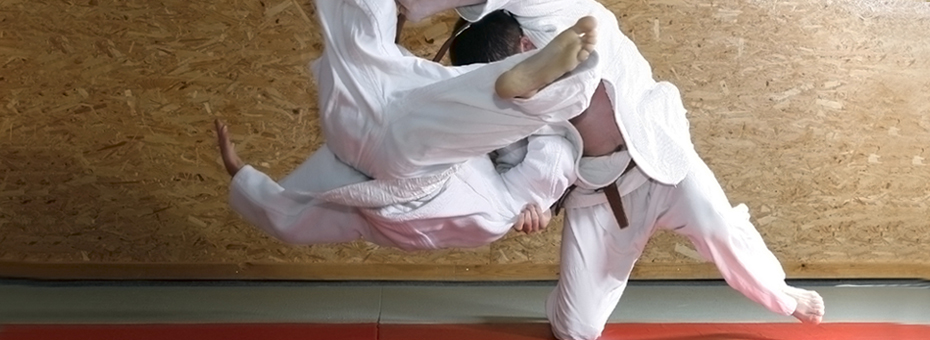Cue the music. “That will never work, because…”
These words are the chorus line in the Battle Hymn of the Status Quo. Although the verse that follows varies across time and place, that chorus is universal. These six words echo throughout every shop floor, conference room, laboratory, and back office where change is afoot. It’s a rallying cry that unites the masses in resistance.
We in the lean world, however, HATE this tune. Resistance in an organization can be a daunting foe to even the most highly skilled of lean practitioners because of its ability to bring the change process to a screeching halt. However, we can convert resistance from a roadblock into a positive source of energy and engagement if we remember to think like the judoka.
No, it’s not a typo. In lean world, most of us are familiar with the concept of jidoka (and if you’re not, please start your learning journey here. Most of us, however, have never before heard the word judoka, and you certainly cannot find it in the Lean Lexicon.
So, what is judoka, you ask? The question is not what, but who. A judoka is a practitioner of the martial art – and Olympic sport – of judo. The origins of judo can be traced to a man named Jigoro Kano who founded the first judo school and dojo in Tokyo, Japan in 1882. Mr. Kano named his art judo, meaning “The Gentle Way” based on his philosophy of exerting maximum effectiveness through minimal effort in both sport and in life. Put into practice, this philosophy sets judo apart from other martial arts and makes the discipline uniquely effective in encountering resistance from an opponent.
Rather than meeting an attack with opposing force, the judoka uses the opponent’s own momentum against them to gain the advantage. For example, if a judoka senses a push from an opponent, he/she does not push back; the judoka will pull with the opponent to take the adversary off-balance. With the opponent’s momentum now captured, he/she can apply a myriad of techniques to generate favorable leverage with minimal exertion of his or her own effort. This is the result. The techniques used in judo, which employ this strategy of non-resistance, are particularly effective against larger and more powerful opposition. Physical disadvantages are not of major concern because they use the size and power of their opponent as their own. The more resistance that the opponent is able to generate, the greater the potential advantage.
So, next time you are faced with resistance to change, put the techniques of the judoka to work for you by doing the following:
1. Identify the Initial Signs of Resistance
Be prepared to react at the first signs of resistance. If given sufficient time to fester, a small pocket of negative perception can spread rapidly throughout an organization. Moreover, resistance is difficult to identify, especially in the beginning phases of the change process, because the vast majority of resistance is not expressed openly. Shigeo Shingo estimated that as much as “95% of objection is cautionary.” Become familiar with the leading indicators of resistance and ensure that there are open lines of communication in which the targets of the change feel safe to voice their fears and opinions.
2. Avoid Pushing Back
Our struggles in driving change originate from the way we tend to think about resistance, which is evident in the language we use. We fight resistance. We do battle against the resistance. It’s a force that we must overcome, surmount, mitigate, defeat and/or conquer in order to ensure that the change process marches on. In other words, we attempt to match the force of resistance by mustering an equal and opposite force of our own. The problem with fighting against resistance in an organization is that we severely underestimate the opponent. Resistance to change stems from a natural and powerful psychological response that spreads rapidly through individuals within an organization. As lean practitioners attempting to fight resistance, our approach is simply not effective against a bigger and stronger opponent. Rather than push back against the resistance, seek to pull energy from the collective and powerful fears, passions and emotions of those resisting.
3. Capture the Momentum of the Opposition
Engage the most vocal and outspoken targetsof the change to participate directly in the change process. How? Instead of reacting to, “that will never work, because…”, ask that the statement be reframed in the form of, “that would only work if…” This subtle change produces an entirely different dialogue around the proposed change. The former phrasing is destructive with a verse that attempts to derail the change process. The latter,is highly constructive because it encourages team members to identify the critical few problems that need to be solved to make the proposed idea work. Even better, the person resisting is usually also the first one to highlight problems, so he/she can be engaged in the problem solving process and recruited to help develop the solutions.
I see so many parallels between the worlds of Lean and judo. In practice, both disciplines have developed effective strategies that deliver maximum impact (or value) through minimum effort (or cost). But could it be that the reason for the widespread success of each is the same greater purpose that both seek to fulfill? In lean circles, we preach “respect for people” in all things, while Jigoro Kano founded judo under the belief that “all things connected with it should be directed to its ultimate object, the benefit of humanity.” Perhaps regardless of our struggles, resistance or otherwise, if we can remember to act out of respect for and with benefit to humanity, we will find success.





